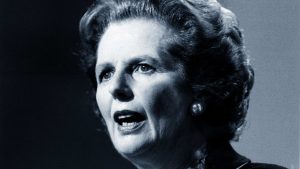
The purge began in the 1990s, under the Hawke Labor government, then continued with gusto during the Howard-Costello governments and beyond. Just about every public asset that wasn’t bolted down, that could be sold, was sold. Out went the Commonwealth Bank, Qantas, Medibank and half of Telstra. State governments joined the rush, selling off water and energy utilities.
Nothing was too big or too small. Jeff Kennett’s Victorian Liberal government even sold the ambulance service. And it wasn’t just the conservative parties, with the Andrews government offloading VicRoads into private hands in 2022.
Victorians might now realise how a short term gain has left them with a lingering hole in the state’s budget. Jeff Kennett may have looked pleased after selling the state’s electricity assets for $23.5bn in the 1990s, but that business now earns an estimated $23bn per year. Unlike a federal government, a state cannot issue its own money, which means that hole has to filled either from the commonwealth, or increased taxes and charges.
Adherents of neoliberalism endow their creed with an almost mystical belief in the market. They claim that anything the public service can do, private enterprise can do better. Businesses are lean, mean and efficient. Business does not tolerate waste, while the bureaucracy wallows in it. The public service is the home of fat cats (especially in Canberra) who spend their days inventing new ways to infuriate us with impenetrable balls of red tape.
Neoliberalism is the school of small government and big business, where private profit is supposedly most efficient the path to common good. I saw first hand just how distorted this myth is when I was contracted to one of the major car manufacturers in Thatcher’s Britain. They had outsourced development of an IT project to a large consulting company. While it was a comfortable job, it wasn’t long before I wondered why they had employed me. Even though I was earning a tidy income, it was hardly satisfying and I spent much of my day inventing ways to look busy. I took no pride in knowing that the consulting company was selling my time for a hefty margin.
I returned to Australia in time to observe the first wave of what outsourcing meant to the public service. The government embarked on a systematic drive to push public service expertise out of the government and into private hands. We were told that business would always do a better job for less money. Yet my colleagues and I were dismayed by one system they built with a mystifying degree of complexity.
They employed a swarm of consultants working on the project, many of whom were inexperienced graduates being charged at a premium. When we saw the budget for a relatively simple internet portal costing $45 million, a workmate quipped that we could have done it for a tenth of the price.
On another project, we were standing at a white board while the consultant described the system they were designing. We thought it was a baroque tangle of needless complexity, expensive to build and difficult to maintain. The consultant merely shrugged, “That’s okay, the client will pay.”
Although we were a bit surprised that he would come out and say something like this, we could see his logic: the work of a public servant is – to serve the public. His job was to earn profit for his company. The net result? A substandard product that cost more.
The public is now paying for far more than just a few wasteful projects. Where the public service has hollowed out its skills, it loses its ability to work for the public good. Public service becomes compromised for profit. The currently unfolding PwC scandal is a classic example of how to blur the lines between public good and private gain.

Probably the most famous quote of Margaret Thatcher that neatly encapsulates the idea of neoliberalism is “there is no such thing as society”. It’s such a patently silly thing to say because, by the same logic, there is no such thing as an economy. More likely what she was really suggesting is that society doesn’t matter. Or, as Bill Clinton’s campaign slogan put it, “It’s the economy, stupid”.
Under this thinking, GDP becomes the highest measure of human achievement. It should be now – if it wasn’t already – abundantly clear how tragically wrong this is. Thatcher should’ve seen it herself as her policies undermined social stability, triggering riots in Brixton and elsewhere as ordinary people suffered. The tragedy of neoliberalism is that it discards a nation’s crucial underpinnings of society and the environment.
It begs the question of whether our purpose in life is to serve the economy. The worst hardcore vision of neoliberalism reduces our lives to measures of production and consumption, where the most important parts of our day are to work in pursuit of material possessions.
The tragedy is that this thinking is condemning us to a future that is driving us towards collapse.
In any case, the logic is ultimately self defeating because, without a healthy society and a healthy environment, there can be no economy.
First published in ACM newspapers, 12 June 2023.